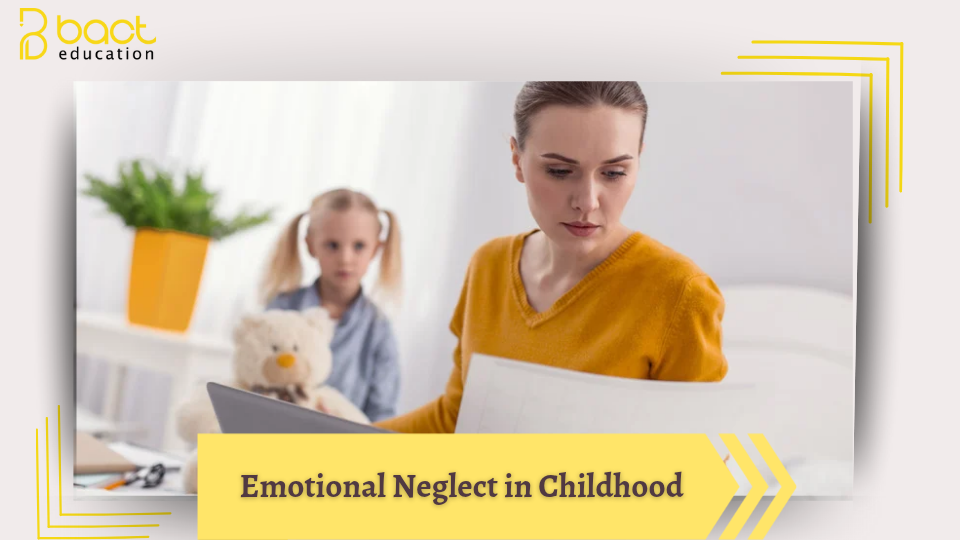Emotional Neglect in Childhood
Introduction:
For healthy development, loving a child—even critically—is not enough. Parents must also be emotionally attuned to their children. To be attuned to others, especially children, parents need to be aware of and understand their own emotions.
People often overlook emotional neglect and abuse they experienced in childhood until adulthood, when symptoms become more apparent. Because emotional neglect is often silent and invisible, it is frequently ignored in our society—unlike physical neglect or abuse, which usually has visible signs such as bruises or malnutrition, making emotional neglect harder to detect.
- What is Emotional Neglect in Childhood?
Emotional neglect in childhood refers to the failure to meet a child’s basic emotional needs. It involves a lack of emotional responsiveness to the child’s distress, ignoring their social and emotional developmental needs, or expecting children to handle situations beyond their maturity or safety.
This neglect can be intentional, where parents deliberately dismiss or invalidate the child’s feelings, or unintentional—when parents, despite their love and care, are unaware of or unable to meet the child’s emotional needs. Emotional neglect doesn’t necessarily mean the absence of care but rather the absence of emotional support.
- What Are the Symptoms of Emotional Neglect?
Symptoms of emotional neglect may include:
- Fear of relying on others and rejecting help or support.
- Difficulty identifying strengths, weaknesses, likes, dislikes, or life goals.
- Lack of self-compassion, self-criticism, and low self-esteem.
- Constant self-blame, feelings of guilt, or shame for personal needs or emotions.
- Feeling unable to control or express emotions.
- Feelings of exhaustion and quick surrender.
- Sensitivity to rejection.
- Feeling an undefined personal deficiency.
- What Are the Effects of Emotional Neglect in Childhood?
The effects of childhood emotional neglect can include depression, anxiety, apathy, hyperactivity, aggression, developmental delays, inability to thrive and succeed, low self-esteem, social withdrawal, and avoidance of emotional closeness.
- What Is the Difference Between Emotional Neglect and Emotional Abuse?
Emotional neglect is the absence of emotional support and responsiveness from parents or caregivers, leading to feelings of emptiness and difficulty forming relationships. Emotional abuse, on the other hand, involves deliberate actions to emotionally harm or manipulate the child, resulting in psychological trauma and issues like low self-esteem and anxiety.
In essence, emotional neglect is about absence, while emotional abuse involves intentional harm. However, both are forms of emotional trauma. Emotional trauma refers to any experience that overwhelms an individual’s ability to cope and leaves lasting psychological scars. Both neglect and abuse can deeply affect emotional health, causing long-term issues such as depression, anxiety, and difficulty forming healthy relationships.
Conclusion:
Emotional neglect occurs when someone treats another person’s feelings and emotional needs as unimportant, nonexistent, or a burden. It can happen in any type of relationship: romantic, familial, parental, friendships, and even in the workplace.
Emotional neglect is usually shown through behavior, not direct words. It is often not an active statement, but a lack of response—something especially harmful to a developing child. Specifically, emotional neglect in childhood happens when parents fail to respond adequately to their child’s emotions during upbringing, sending the message that the child’s feelings are invisible or unimportant. As a coping mechanism, children naturally begin to suppress their emotions, and this disconnection from their feelings lays the foundation for many lifelong struggles.

